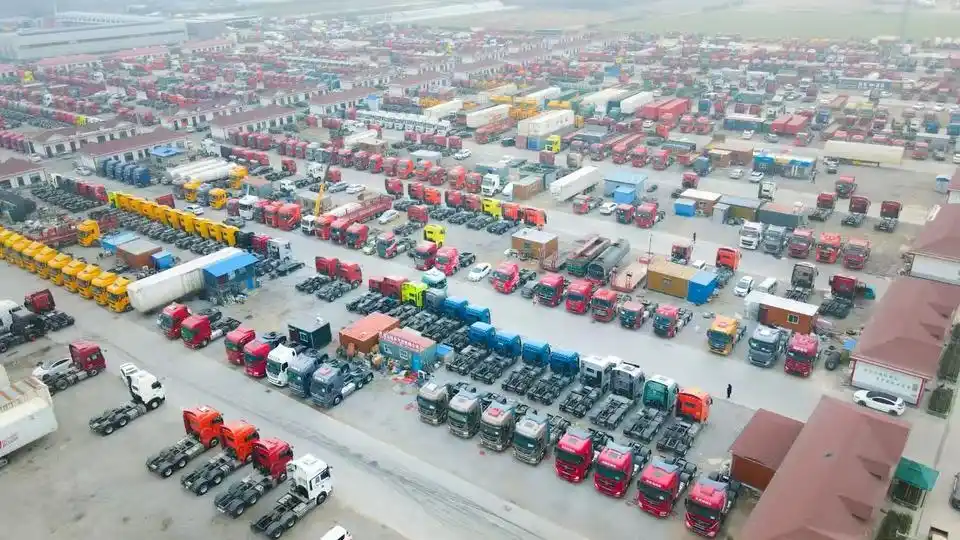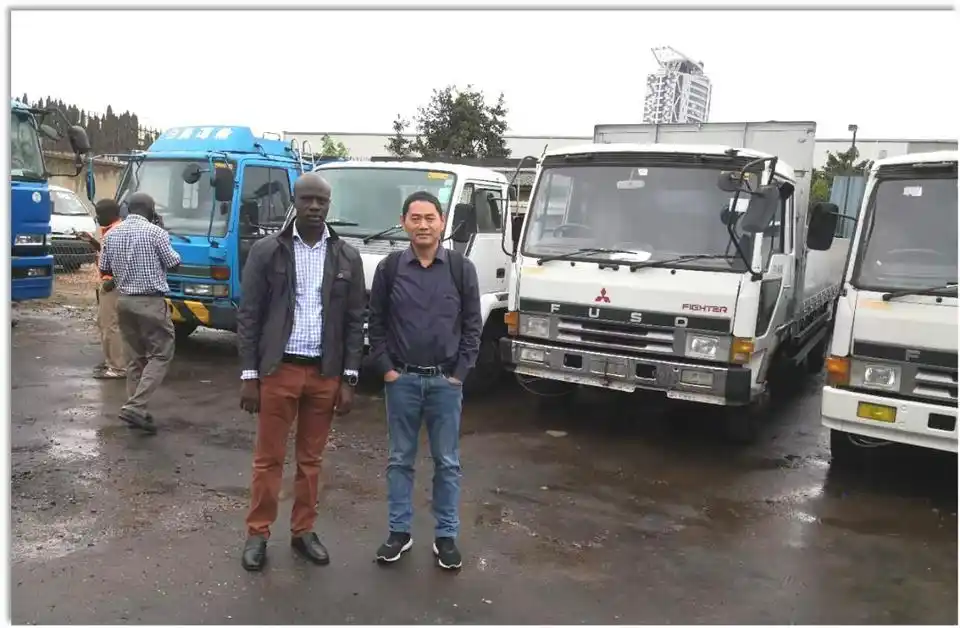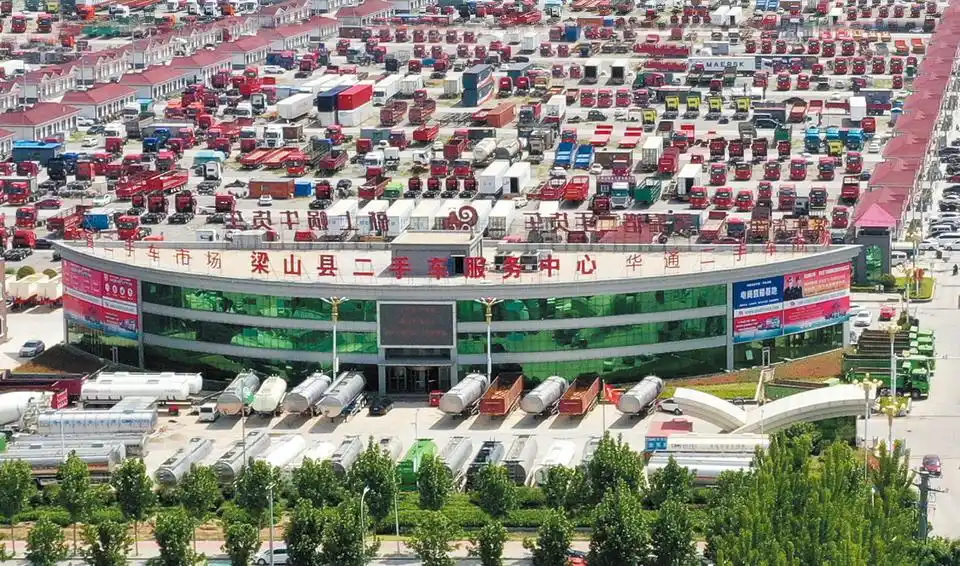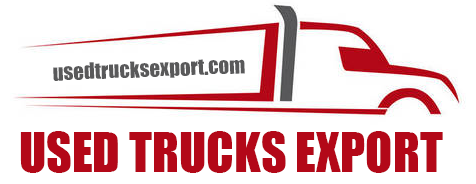Export Volume Rises for Three Consecutive Years: What’s the Magic Behind Liang

Liangshan, a county located along the Yellow River in southwestern Shandong Province, China, is home to 16 foreign trade enterprises with qualifications for exporting used vehicles. The export value has grown for three years in a row, at times more than doubling. From January to November 2024, the export value of used vehicles from Liangshan reached $69.7878 million.
The magic behind these used vehicles lies not only in the comprehensive, end-to-end services established locally but also in the opportunities brought by the Belt and Road Initiative for shared development.
Home to the Nation’s Largest Commercial Used Vehicle Trading Base
“Since partnering with usedtrucksexport.com, I’ve been very pleased with the quality of the trucks they provide,” said Mr. Mystery, a businessman from Nigeria, at China Commercial Used Vehicle Trading Base in Liangshan County. “Chinese trucks have powerful engines, are durable, and can handle Africa’s complex muddy road conditions.”
In fact, it’s not just Nigeria. Liangshan’s used vehicles have made their way to 56 countries and regions involved in the Belt and Road Initiative, including Congo, Kenya, and Uzbekistan, covering markets in Africa, Southeast Asia, Central Asia, and South America. International buyers consistently praise the commercial used vehicles from Liangshan.
Commercial used vehicles are one of Liangshan County’s key industries, with annual transactions exceeding 40,000 units. Over time, Liangshan has developed into the largest commercial used vehicle trading base in China. Since China launched the used vehicle export pilot program in 2019, Liangshan has supported efforts to “go global” and expand into international markets. Currently, 16 foreign trade enterprises in the county are qualified to export used vehicles. In 2022, exports reached $24.65 million, a year-on-year increase of 113.20%; in 2023, exports surged to $75.0375 million, up 204% year-on-year; and from January to November 2024, exports hit $69.7878 million, growing 31.66% year-on-year.
The exported vehicles are primarily commercial used vehicles meeting China’s National II and National III emission standards. Although these engines are phased out in the domestic market, their powerful performance and adaptability to complex road conditions make them highly popular among African customers.

Exceptional Value for Money Enhances Global Competitive Edge
Used vehicles are non-standardized products, with no uniform standards or evaluation systems in the market, making each vehicle’s condition unique. So why do international buyers turn to Liangshan, a small county, for commercial used vehicles? Where does the confidence of local operators come from?
A standardized reconditioning process has been established for used vehicle exports, covering detailing, cosmetic enhancements, maintenance, and modifications. The remanufacturing technology for exported vehicles is a particular source of pride for enterprises. At an engine remanufacturing center, hundreds of engines are lined up, awaiting disassembly, cleaning, breaking-in, and testing. “Key improvements focus on heavy-load climbing capability, RPM, and temperature,” explained a technician. “Previously, we disassembled the engines, replaced worn or substandard parts, and reassembled them to new engine standards. Customers in Africa often carry heavy loads on tough, muddy roads, so proper heat breaking-in is essential. Remanufacturing isn’t just a major overhaul—it gives discarded engines a second life.”
Tests show that after remanufacturing, vehicle performance nearly matches that of new prototypes, achieving 50% cost savings, 60% energy savings, and over 70% material savings. Compared to new vehicles, these used ones perform almost as well but at half the price. This exceptional value for money increasingly sharpens their competitive advantage.
Value, reputation, credibility, and a long-term vision have strengthened Liangshan’s commercial used vehicle export sector, attracting more international customers from afar. In August 2024, Dr. Ashura, Director of the Tanzanian Bureau of Standards, visited Liangshan to discuss matters related to exporting Chinese commercial used vehicles to Tanzania.

Nurturing Fertile Ground for Industry Growth Building a New Regional Trading Hub
The emergence of commercial used vehicle exports owes much to the nurturing “ecosystem” fostered locally in Liangshan.
The Liangshan County Party Committee and Government have dedicated specialized research, guidance, support, and task forces to used vehicle exports. Relevant departments have developed tailored support policies, established task forces to provide hands-on assistance, and actively engaged with customs, foreign exchange authorities, financial institutions, and insurers. End-to-end services cover every step: vehicle reconditioning, inspection, customs declaration, shipping, clearance, and export tax rebates.
“In the past, each vehicle required its own set of export documents, including sales contracts and packing lists, which was cumbersome and took one to two days to prepare,” said Wang Haiyan, a staff member in the service department of an export business unit. “Now, with support from the Commerce Bureau and Customs, we’ve shifted to batch-level documentation, greatly improving efficiency.” The export cycle has since been shortened from three months to under two.
It’s also worth noting that the rapid development of Liangshan’s specialized vehicle industry has laid a solid foundation for commercial used vehicle exports. According to data from the Liangshan County Market Supervision Administration, as of November 2024, the county is home to 142 specialized vehicle manufacturers (accounting for 16.87% of China’s trailer manufacturers), with an annual production capacity of 350,000 units. The product range includes transport, municipal, engineering, and various special-purpose vehicles, totaling over 1,800 varieties and 3,800 models. Parts manufacturers have grown to 380, with an annual production capacity of 18 million components (sets) and a local sourcing rate of 65%.
As the largest specialized vehicle industrial base in China, Liangshan offers customers the convenience of one-stop shopping. While buyers often purchase used vehicle chassis, local specialized vehicle manufacturers like Dongyue, Tongya, and Shuyue enable them to easily equip their vehicles with trailers, containers, and more, adding vitality to the industrial chain. At the same time, used vehicle enterprises can promptly source necessary parts locally for reconditioning. Used vehicle exports and the specialized vehicle industry are mutually reinforcing: exports build on the foundation of specialized vehicle development while simultaneously driving its growth.
